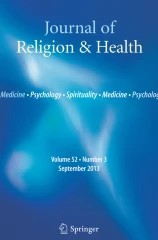Coming soon: Differentiation, Humility, and the Rorschach
A third study from the Danielsen Institute’s psychological testing work with religious leaders has been accepted for publication with the Journal of Religion and Health. Dr. Elise J.Y. Choe led this project with expert psychological testing support and research input from Dr. Rebecca Moussa and Dr. Nicolae Dumitrascu. This article found further support for key connections between differentiation of self, humility, and mental health among religious leaders which connect to the relational spirituality model utilized and developed at the Danielsen Institute. The citation and abstract are below.

Citation
Choe, E.J.Y., Sandage, S.J., Moussa, R., & Dumitrascu, N. (in press). Humility, differentiation of self, and Rorschach assessment of clergy candidates in the United States: An exploratory study. Journal of Religion and Health.
Abstract
Religious leaders occupy unique spaces as heads of communities who both provide care and support but also help face and navigate conflict within and outside of these congregations. Conflicts are becoming increasingly heightened as the world continues to polarize across various divides. Both psychology and theology have named humility as a virtue that may be helpful for religious leaders placed in complicated situations. Additionally, intellectual humility and differentiation of self (i.e., emotion regulation and capacity for boundaried relationships with others) has garnered attention as a possible critical virtue for religious leaders. These virtues may especially be critical in emerging religious leaders whose formation is still in progress. Therefore, in this study, emerging religious leaders undergoing psychological assessments for ordination were examined. Self-report measures of general and intellectual humility and differentiation of self were considered alongside performance-based assessments of personality structures (i.e., Rorschach inkblot test). Results indicated that interpersonal guardedness (V-Comp; vigilance to social threats) on the Rorschach was negatively associated with humility, with the relationship being mediated through differentiation and contingent self-esteem (self-esteem that is reliant on external validation). Another subscale, Si1 (space integration; complex thinking where various factors are considered and integrated together) was negatively associated with intellectual humility, which was moderated by differentiation. Implications on the role of differentiation on general and intellectual humility and existing personality structures are considered and discussed.
